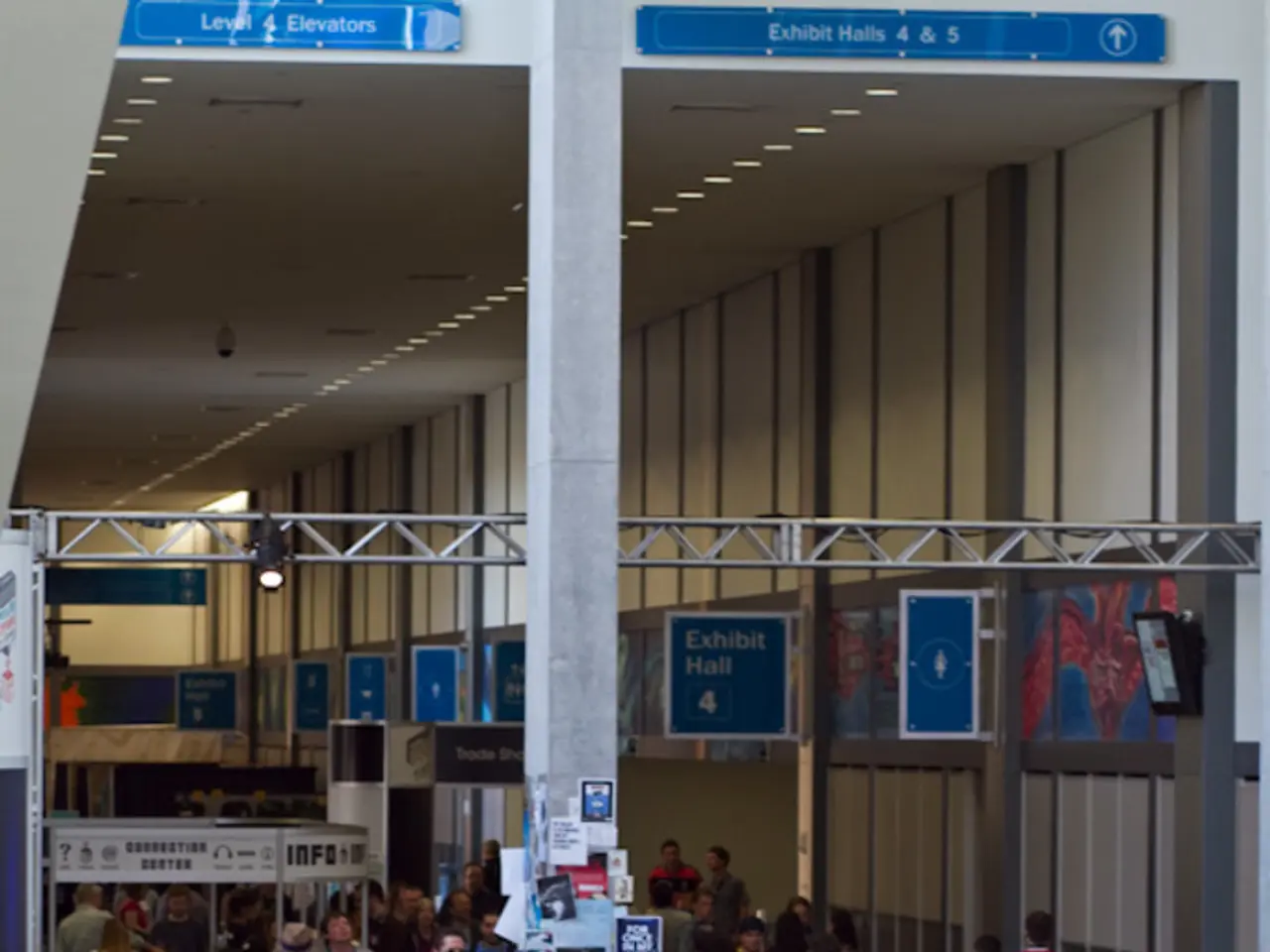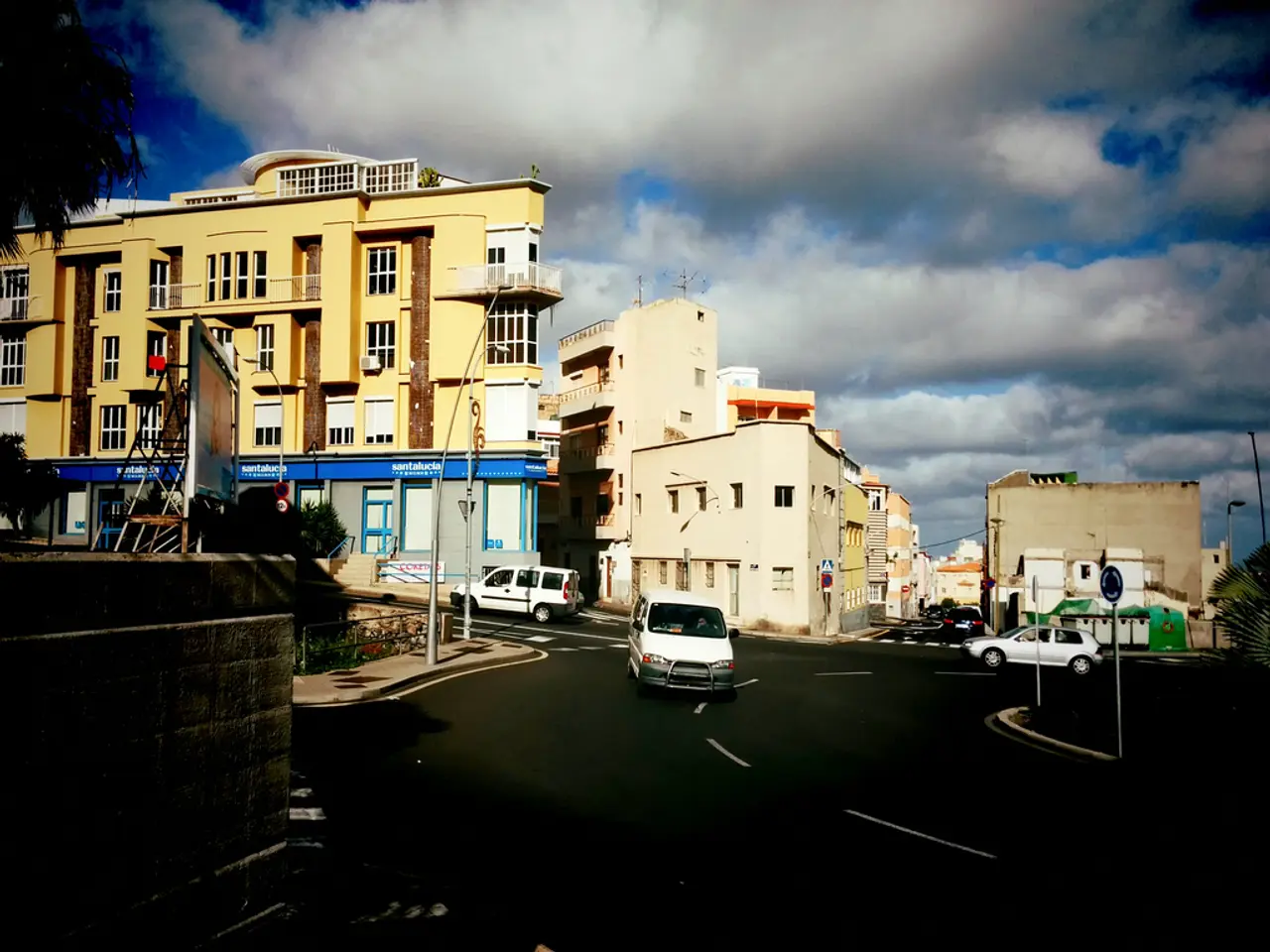Erupted Again: Lewotobi Laki-Laki Volcano Spews Ash Cloud, Disrupting Air Traffic in Bali
Volcanic eruption sends massive ash plume – Aviation services affected in Bali - Volcanic Eruption Causes Ash Disruption for Bali-Bound Flight
Hey there!
If you're reading this, you might want to know what's happening in eastern Indonesia these days. The Lewotobi Laki-Laki volcano, a real firecracker in the region, has erupted yet again, sending a massive ash cloud soaring 11 kilometers high. And here's the bummer for travelers - air traffic to the swanky island of Bali has been disrupted.
More than 20 flights have been canceled or delayed, according to officials. Three airports in the province of East Nusa Tenggara were closed, and at least 26 domestic and international flights were affected, affecting over 14,000 passengers, including those operated by Singapore Airlines and JetStar.
Did you know that Lewotobi Laki-Laki is the more active half of the Lewotobi twin volcano complex on beautiful Flores Island? It's got a bit of a history, with eruptions recorded back in 1921 and 1935. In fact, it's been acting up lately, with activity noted in February and November of last year. And don't even get us started on the major eruption that happened on June 17, 2025!
Because, yup, that's right! This volcano is no stranger to explosive events. And while we're not meteorologists, let's hope the forecast suggests that the ash cloud will dissipate by evening, just like JetStaroptimistically reported.
Unfortunately, the eruptions can have serious consequences for local populations. During the November 2025 eruption, for instance, at least nine people were killed, and thousands were evacuated. Indonesia lies on the so-called Pacific Ring of Fire, a region of high seismic activity over several tectonic plates.
Remember, volcanic ash can be a serious hazard to air traffic. Ash plumes rising several kilometers from the summit, such as the one we're seeing now, can damage aircraft engines and pose risks to flight safety, typically resulting in airspace closures or flight rerouting. And while specific reports on air traffic disruptions are not extensive, given the scale of this eruption's ash plume height and intensity, it's safe to say that aviation operations are likely to be affected in the region during these eruptive periods.
But enough doom and gloom, eh? Let's cross our fingers for a quick return to normal skies and blue skies over beautiful Bali!
- Volcanic Eruption
- Indonesia
- Flores
- Natural Phenomenon
- Hazard Zone
- State of Emergency
(Enrichment Data: Lewotobi Laki-Laki is an active stratovolcano in southeastern Flores, Indonesia, with historical eruptions in 1921, 1935, and recent activity in 2025. The volcano erupted massively on June 17, 2025, sending an 11-km ash plume and triggering the highest alert level. The eruptions have led to large-scale evacuations and establishment of exclusion zones, with government and military aid for displaced residents. The large ash plumes pose serious threats to air traffic safety, likely causing flight disruptions in the region during eruptive episodes. This volcano remains under close monitoring by Indonesia’s Pusat Vulkanologi dan Mitigasi Bencana Geologi (PVMBG) due to its active nature and potential hazards to nearby populations and air traffic.)
- The community policy in Indonesia should include measures to address the impact of volcanic eruptions, considering the recent activity of Lewotobi Laki-Laki in Flores, a destination for environmental science, climate-change, and general-news enthusiasts.
- The ongoing eruption of Lewotobi Laki-Laki volcano underscores the importance of environmental-science studies, as it provides evidence of the volatile nature of our planet's environment.
- A historic event was the June 17, 2025, eruption of the Lewotobi Laki-Laki volcano in Indonesia, which resulted in severe environmental destruction and numerous car-accidents due to poor visibility, compounding the challenges faced by the emergency services.
- Apart from the direct destruction caused during a volcanic eruption, such as those experienced in Bali due to the Lewotobi Laki-Laki ash cloud, these events potentially pose risks to area wildlife and local vegetation, further impacting the environment.
- In light of the disruptive impact of the ash cloud from the Lewotobi Laki-Laki volcano on weather forecasting and air traffic, officials are looking into innovative solutions such as artificial intelligence that can predict the behavior of such environmental factors more accurately to prevent future accidents and inconveniences.








